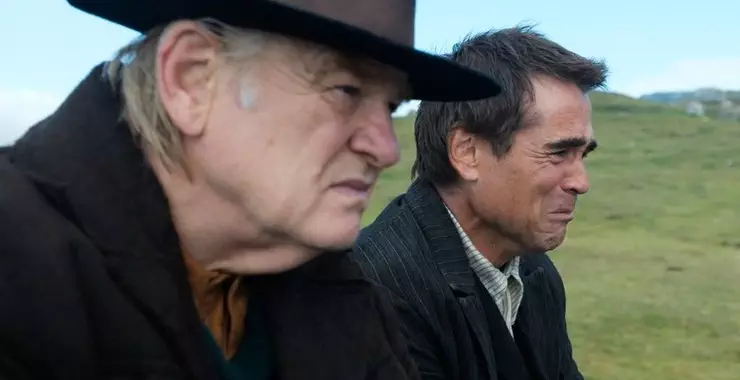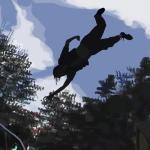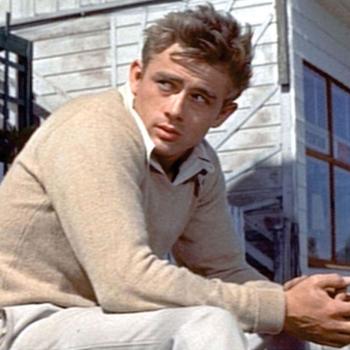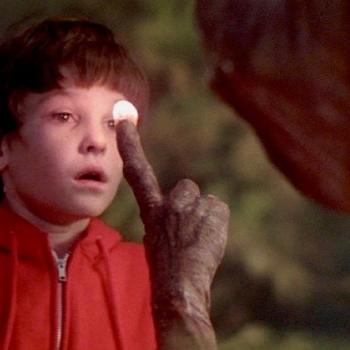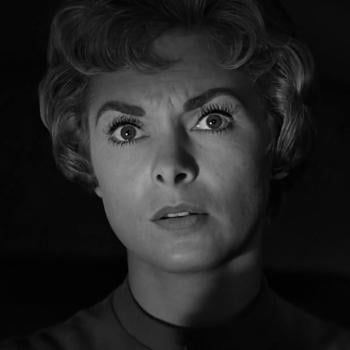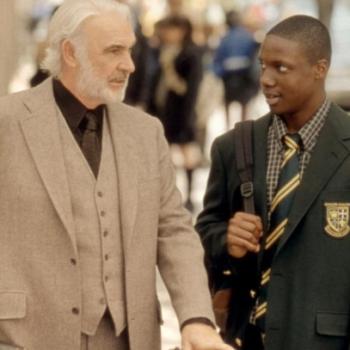
A year or two back, a film review channel I follow made a point in one of their videos that the romantic break-up is a mainstay of pop culture (Rachel and Ross can break up or just evade reconciliation a good six or seven times over the run of FRIENDS) while there isn’t really a cultural touchstone for processing the dissolution of a friendship. And now I wonder if Martin McDonagh also follows this channel because his recent film (and contender for this week’s Oscar race) tackles the question of what happens when your best bud says he “just don’t like you no more.”
Taking place in 1920s Ireland, the film sees longtime friends Padraic and Colm coming at a stumbling block when Colm decides to terminate their friendship, much to Padraic’s despair, and the entire film follows the repercussions of a friendship fallen apart.
What is ultimately driving this wedge? In a word, pride.

The question of whether either of these fellows could be doing “something better” with their time is a recurring issue with these two. Colm is very much convinced that the time he spends entertaining Padraic would be better spent on other endeavors, like composing a piece of music. Meanwhile, Padraic is not a complicated man and aspires for very little. He is content making small talk with his fellow countrymen (or his farm animals for that matter), and he is not impressed with things of the intellectual sphere. For this reason, Colm has decided that Padraic is too dull to be worth his time any longer. (“But he’s always been dull,” protests Padraic’s loving sister, Siobhan.)
Padraic may be “dull,” but the film insists, and the audience recognizes, that Padraic is also “nice.” Part of what makes Padraic such pleasant company is that he is humble, non-judgmental, open, and finds joy in little things. The very qualities that Colm takes issue with are in fact part of what makes Padraic an endearing character. It can be inferred that at one point Colm did in fact take delight in his friend’s quirkiness, and this is part what makes his eventual split from Padraic so tragic.
I point to “pride” as the root of their fallout in part because Colm’s decision to cut ties with Padraic stems out of an idea that he is somehow better or smarter than his friend. It’s almost like Colm is trying to purge his own dullness through his dismissal of Padraic. And yet, Colm can’t even remember in what century Mozart wrote his masterworks, like those Colm thinks he is only a break-up away from writing himself. Odds are, however beautiful his contribution ends up being, Colm will likely not join the class of Mozart and Beethoven. But in pursuing this at all costs, he is denying himself the fruits of “niceness” that he balks at. And what’s worse, he may be dragging Padraic down with him.
Padraic does not take well to Colm’s newfound craving for independence, and as the separation takes heavier tolls on him, he makes riskier bids for reconciliation, or else retribution. Their schism precipitates mounting displays of desperation from both parties in growing bizarreness. By the end of the film, we’ve seen (spoilers!) the burning of a house, the untimely death of a donkey, and Colm chopping off all his fingers on one hand. They’re both hurt by this game of chicken, but in the case of Padraic, the ordeal is transformative. He loses some of his light. Some of his “niceness.”
By the story’s end, it almost seems like Padraic has taken it on himself as the enforcer of their divide. “Some things, there’s no moving on from. And I think that’s a good thing.” (Padraic says this just after he has burned down Colm’s house.) Colm thanks Padraic for watching his dog for him while his house was on fire, and Padraic returns, “Anytime.” It’s clear that despite all the hurt this separation has caused both of them, Colm and Padraic continue to care deeply for one another and that there is the potential for healing, if only they’d both do the hard work. And this is where pride again comes between the two of them.
And so the film lands on this bittersweet conclusion. Sweet because Colm and Padraic’s mutual affection may very well outlast either of their human pettiness. Bitter because any chance they have to enjoy the fruits of this genuine kinship may well be held captive forever by their own shared stubbornness.
